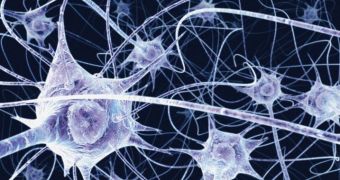The extent to which emotions influence memories has been the subject of a large number of studies, carried out over the past few years. Scientists are very curious to learn more about this aspect, given the importance this has in everyday life. Memories are used for example in the justice system, where witnesses give their account of what happened. A new study suggests that the memory itself may be very tied to the emotions the witness felt while experiencing them. This is especially true for children, the team behind the new investigation believes.
“Emotion is so central to memory in the law. Determining the conditions in which false memories increase or can be suppressed or eliminated is an urgent question,” explains Chuck Brainerd, professor of human development and adjunct professor of law at Cornell University. He was one of the co-leaders of the new investigation, which reveals a very concerning fact. It would appear that emotion-driven distortions or falsifications appear in memories more often than not, which means that people go to jail, or are set free, based on evidence that may or may not exist.
The new investigation was carried out at Cornell, with funding from the US National Science Foundation (NSF). Most of the work was oriented on children, given that their memories are known to be very susceptible to influences exerted after the events they are supposed to remember took place. Details of the new conclusions, as well as of the methodology employed for the study, appear in the latest issue of the esteemed scientific Journal of Experimental Child Psychology.
“Our experiments allowed the distortive effects of emotion on children's memory to be studied ethically. To avoid concerns about exposing children to levels of emotional intensity associated with crimes or other everyday events, our design exposed children, adolescents and adults to mild levels of emotion with word lists,” adds Cornell expert Valerie Reyna, the other co-leader of the investigation.
“The study showed that the ability of negative-arousing events to stimulate false memories increases considerably between early childhood and young adulthood. This is remarkable because common-sense and most theories of development expect that if emotion distorts memory, children ought to be more susceptible,” Brainerd explains. “We need to jettison the old idea that experiences that are negative and arousing are less prone to distortion than other types of events. We also need to jettison the related idea that children are more susceptible to memory distortion from negative experiences. Instead, the message is the opposite: negative-arousing events are probably more memory distorting, especially for adults,” he concludes.

 14 DAY TRIAL //
14 DAY TRIAL //